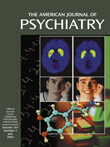Worsening Schizoaffective Disorder With Aripiprazole
Mr. A, a 50-year-old man with schizoaffective disorder, bipolar type, since his mid-20s, was treated with quetiapine, 400 mg b.i.d., and divalproex, 1000 mg b.i.d. He did reasonably well with this regimen but sometimes expressed grandiose delusions and had occasional auditory hallucinations and poor impulse control. Previous response to treatment with risperidone had been poor. He was moderately obese but had no other medical problems. He lived with his mother, who administered his medications and ensured that he was compliant with treatment. He did not drink alcohol or use illicit drugs.Aripiprazole, 15 mg/day, was added to his treatment regimen. A week later, he was more grandiose and sometimes responded to internal stimuli. His aripiprazole dose was then increased to 30 mg/day. Several days later, he became agitated, began threatening others, and would spend hours wandering in the streets. His mother stopped the aripiprazole because she felt it made him worse. His other medications were continued as prescribed. A week later, she brought Mr. A to the clinic and related that he was better after discontinuing aripiprazole.Mr. A was hospitalized to adjust his medications under controlled conditions. Divalproex and quetiapine were continued as before; aripiprazole, 15 mg/day, was resumed. After 6 days, he became more irritable and grandiose, and his hallucinations increased. Aripiprazole was discontinued, and 4 days later, his status was similar to that at admission. Ultimately, he responded best to divalproex, 1000 mg b.i.d., and olanzapine, 20 mg at bedtime.
References
Information & Authors
Information
Published In
History
Authors
Metrics & Citations
Metrics
Citations
Export Citations
If you have the appropriate software installed, you can download article citation data to the citation manager of your choice. Simply select your manager software from the list below and click Download.
For more information or tips please see 'Downloading to a citation manager' in the Help menu.
View Options
View options
PDF/EPUB
View PDF/EPUBGet Access
Login options
Already a subscriber? Access your subscription through your login credentials or your institution for full access to this article.
Personal login Institutional Login Open Athens loginNot a subscriber?
PsychiatryOnline subscription options offer access to the DSM-5-TR® library, books, journals, CME, and patient resources. This all-in-one virtual library provides psychiatrists and mental health professionals with key resources for diagnosis, treatment, research, and professional development.
Need more help? PsychiatryOnline Customer Service may be reached by emailing [email protected] or by calling 800-368-5777 (in the U.S.) or 703-907-7322 (outside the U.S.).

